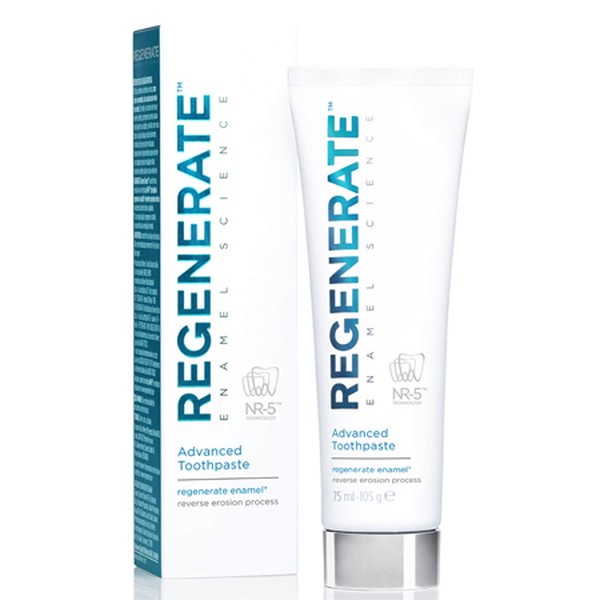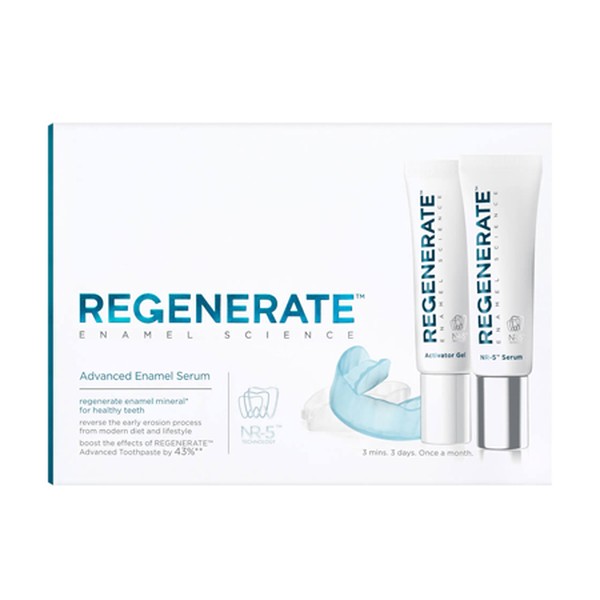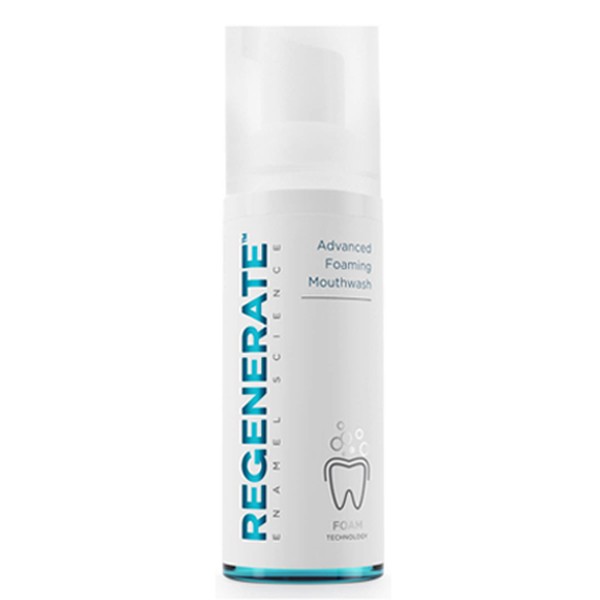Every Dental Hygiene Question You’ve Ever Had, Answered
CREATED IN PARTNERSHIP WITH REGENERATE™ Enamel Science
How Often Should You Really Be Visiting The Dentist?
We advise people to attend every six months to see both the dentist and hygienist as part of their oral health maintenance. This has become more consistent due to the positive oral health message being spread on social media channels by dental professionals. Helping to raise awareness, therefore, prompting people to book in for their appointments.
Should You Be Brushing Your Teeth Before Or After Breakfast?
I always say if you brush your teeth before breakfast, then you’ve protected them before eating thanks to the fluoride in the toothpaste. If you brush afterwards and you’ve had things like juice or cereal, you risk rubbing the acids or sugars into the enamel. If you feel you want to cleanse your mouth after eating, the best thing to do is to rinse with some water or have a piece of sugar-free gum, especially one that contains xylitol because this will help fight dental decay. Failing that, at least wait one hour after eating before brushing your teeth or having acidic drinks, and where possible, try to rinse with a mouthwash like REGENERATE™ Advanced Foaming Mouthwash post-meals. It uses FOAM technology to deliver lasting freshness and make teeth stronger and healthier to future-proof your smile, while the micro-bubbles inside reach between all small gaps for a thorough rinse.
Do Any Foods Promote A Healthy Mouth?
‘Safe snacks’ in between meals include nuts, cheese – which can actually help neutralise plaque acids post-meal – fresh vegetables, fruit, plain yoghurt, crisps, rice cakes and plain popcorn. Avoiding sugary/acidic food and drink (including lemon water and sparkling water) between meals is important. If these are included in the diet, keep them to three to four sugar/acid attacks per day and always keep them to meal times.
Is It True Teeth Whitening Can Be Damaging?
When performed correctly by a dental professional, teeth whitening doesn’t cause damage at all. At most, some people may experience short-term sensitivity while undergoing treatment, but that’s it. The best way to avoid this is to use a remineralising toothpaste before and during the whitening process as this helps to block the dentinal tubules and form a protective layer to stop pain signals getting through to the tooth nerve.
What Exactly Causes Enamel Erosion In Your Teeth?
Enamel erosion is mainly caused by acids found in food and drink. Each time you consume anything acidic it softens your tooth enamel. Your saliva helps to re-mineralise the enamel, however, if consumption is too frequent, this is when it could lead to enamel erosion. Other causes may be from stomach acids caused by acid reflux or eating disorders such as bulimia. You’ll know if your enamel is eroding because you’ll see it becomes translucent. In turn, this can expose dentine which is the layer of tooth underneath the enamel and this can lead to tooth sensitivity and yellowing due to the reduction in the thickness of the enamel.
Can You Ever Repair Enamel Erosion Once It’s Happened?
Enamel erosion is unfortunately irreversible, however, some fluoride-based dental care systems such as REGENERATE™ Enamel Science Advanced Toothpaste and Boosting Serum can help to re-mineralise early enamel erosion. This is due its NR-5 technology, which helps to form a fresh supply of minerals which wrap and integrate onto teeth to regenerate enamel mineral with regular use*. Composite bonding, which is the build up of the teeth using a white filling material, may also be possible but the enamel itself will never grow back.
Is Grinding Your Teeth Really That Bad?
Yes. Clenching and/or grinding of the teeth is something we may do when we are stressed and this again, can cause tooth surface loss which is frequently seen in combination with enamel erosion. This then leads to further thinning.
As You Get Older, Should You Care For Teeth Differently?
Prevention is always best so ensuring you are maintaining your teeth throughout life is important. My advice to best maintain a healthy smile is to brush twice per day with a fluoride toothpaste like REGENERATE™ Enamel Science Advanced Toothpaste and use an electric toothbrush too. Also, make sure you’re using interdental cleaning aids on a daily basis. Finally, ensure you see your dentist and hygienist every six months as part of your oral care regime.
Is It A Myth That Brushing Alone Can Protect Teeth?
The physical removal of plaque with a toothbrush is essential, however, it is important to use floss or interdental sticks to help clean in-between your teeth as a toothbrush doesn’t always reach these areas. Teeth products with antibacterial properties will also help to reduce harmful plaque bacteria which can cause tooth decay and gum disease.
When It Comes To Stains, Can You Ever Remove Them Yourself?
Using a whitening toothpaste at home may help to remove some extrinsic surface stains caused by tea/coffee and red wine. However, the most effective way to remove staining is to see a dental hygienist regularly – you’ll notice such a difference. If these stains are still not removed, they can become embedded into the deeper layers of the teeth causing yellowing – in this instance, only dental teeth whitening will help to remove this type of stain.
Finally, Is There Any Way To Prevent Teeth Sensitivity Altogether?
The best ways to prevent tooth sensitivity is the long-term use of a remineralising toothpaste. Also aim to reduce your sugar and acidic food and drink intake. It’s important to be conscious of not over brushing, too, as this can remove enamel and lead to hyper sensitivity.
Disclaimer: *Acts on early invisible stages of enamel erosion. Helps to regenerate enamel by restoring its mineral content and micro hardness with regular use. Clinically proven. KEEN TO TRY REGENERATE? SHOP THE RANGE BELOW…
Visit LookFantastic.com
DISCLAIMER: We endeavour to always credit the correct original source of every image we use. If you think a credit may be incorrect, please contact us at info@sheerluxe.com.





